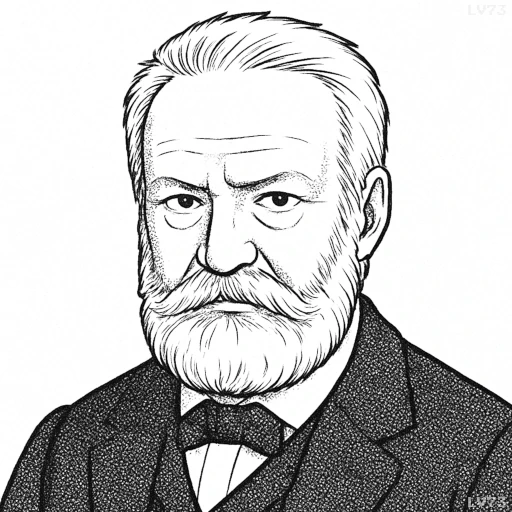“A poet who is a bad man is a degraded being, baser and more culpable than a bad man who is not a poet.”

- February 26, 1802 – May 22, 1885
- Born in France
- Author, poet, playwright
table of contents
Quote
“A poet who is a bad man is a degraded being, baser and more culpable than a bad man who is not a poet.”
Explanation
In this quote, Victor Hugo argues that the moral responsibility of a poet is even greater than that of an ordinary person because a poet possesses the power to shape thoughts and emotions through words. Hugo suggests that a poet, as a creator of ideas and emotions, has a deeper moral obligation to use their talents for good. A bad poet—one who uses their creativity for harmful purposes, spreading negativity or immorality—is considered more degraded than a person who is simply a bad person without the ability to influence others through artistic means.
The poet, in Hugo’s view, is not just an individual; they have the capacity to affect society, to inspire and guide others through their words. Therefore, when a poet behaves immorally or uses their craft for evil, they are more culpable than someone who lacks the same power of influence. The quote speaks to the ethics of art and the idea that artists, especially poets, have a responsibility to use their voice for good and justice.
Hugo’s words reflect his belief in the moral duty of artists and writers, acknowledging that creativity carries weight and influence. For him, a poet’s power is not just in their craft but in the way they affect the hearts and minds of others. Therefore, immorality in a poet is seen as a greater moral failing than in someone without that power.
In modern terms, this quote emphasizes the importance of ethical responsibility in all forms of artistic expression. It calls on creators to recognize the impact they have on society and to ensure that their work serves to elevate and enlighten rather than degrade or harm. It reminds us that those who hold the power to influence thoughts and culture have an obligation to wield that power with integrity.
Would you like to share your impressions or related stories about this quote in the comments section?




